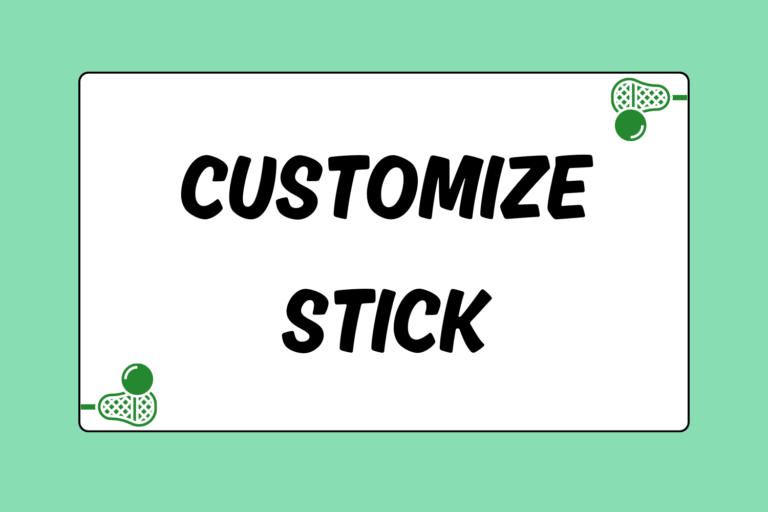Winning lacrosse games is a lot like being in a relationship. The big, flashy plays look nice and may be what people remember. In the end, however, it’s the small stuff that is the foundation for a winning game or lasting relationship.
In relationships, people remember the Hawaiian vacation or the diamond ring. But what truly forms a healthy, lasting relationship is when both parties are committed to doing the small stuff that happens on a daily basis. Lacrosse is the same way. If a team isn’t committed to practicing hard, picking up ground balls, playing hard defense, and just generally making the hustle plays on a daily basis, the team won’t find itself competing for a championship. They can score all the behind-the-back goals and have the prettiest uniforms ever, but without hard work and commitment to the little stuff, none of the aesthetics will mean a thing.
The small stuff adds up over time, and teams that do all the small things will find themselves on the winning end of the close games more often than not. Every facet of the game has little stuff that, if done consistently, will lead to mostly positive results for a player and team.
Goaltending
Goalies have a ton of small stuff to do in order to be complete players. It starts with communication. Goalies have to communicate loudly enough for every defensive player to hear their calls. They have to communicate clearly enough to be understood. Goalies have to know the tendencies of offensive players in order to give specific instructions to defenders on where and how to play certain offensive players.
Corralling rebounds is an area of play where a goalie can save his team a couple of goals per game with strong play. Controlling how far a rebound bounces out has much to do with the goalie’s grip on the stick, and having soft hands. The tighter the goalie is gripping the stick on the ball’s impact, the further away the ball will deflect. Goalies have to find the loose ball on the ground and clamp down on it with the head of their stick to prevent offensive players from picking it up and getting garbage goals – something that can quickly deflate a team’s momentum and energy on the field.
Practicing With Extra Effort
Not everyone is blessed with incredible natural athleticism. Make the most of your abilities by putting extra effort into the small stuff. Dive for that ball to back the shot up on the end line and keep possession for your team. Commit yourself to playing the game with intelligence and to being an emotional leader for your team. Demand that teammates practice with purpose. Coaches notice this stuff and reward it. Treat practice like game situations and your coach will reward you come game time.
Defensemen
Above all else, defensemen have to be selfless, humble players willing to accept the fact that offensive players are going to get most of the credit for a team’s success. This really puts someone’s ability to be a “team player” to the test. Defense is not a glamour position. D-men don’t get the chance to show much flash on the field, and for the most part, they have to be blue-collar type players.
Midfielders
Midfielders have to be able to defend if they want to contribute to their team’s success without having offensive playmaking skills. A player can become a good defender by committing himself mentally to doing so. Defense takes a certain mindset or attitude that not all players possess. Since some midfielders relax and take it easy when the ball travels into the defensive end, a player that commits himself to giving maximum effort and playing with defensive intelligence will absolutely have a chance to excel. Learning when and where attackmen like to feed, when to slide to double team a ball carrier, or how to cut off passing lanes are all great ways to improve as a defender.
Offensively, middies can give a lot to their team just through moving off the ball. This means cutting to the goal and looking for feeds, picking for another offensive player, or cutting through to create space for a ball-carrier’s drive to the goal. All of those things help an offense run more smoothly, as well as endear a player to his teammates.
Attack
An attackman doesn’t necessarily have to be a great goal scorer or feeder to be effective. Attackmen who control the flow of the game and make smart plays can be just as useful as a flashy goal scorer or precision passer.
Outside of contributing to the score sheet, controlling possession for their team is the most important part of an attackman’s game. Some attackers who simply don’t have the necessary quickness to be an effective dodger will have to contribute in other ways. The easiest way to achieve this is through smart play and hustle. Being the third attackman on a team usually means deferring to more talented teammates in big moments, and having a willingness to be a role-player. Every sports car needs the engine to make it go fast, but it also needs oil in there to make sure everything runs smoothly.
Smart play means not turning the ball over, not putting teammates in difficult spots by forcing a pass when no one is open, or not shooting too quickly after the team has gained possession. Smart players take their teammates into account when handling the ball offensively. Are the midfielders tired and in need of a little rest? Hold the ball and work it around the outside. Does the X-attackman have a mismatch against a defender who can’t guard him? Get the ball to X. Is the crease-man going to be open on the isolation play? Take a run from the wing and see what happens.
Hustle plays by attackmen can tilt the balance of a game towards the team who is working harder and making more of those plays. Most hustle plays by attackmen lead to garbage-goal situations where a teammate is wide open in front of the cage due to the defense not being set. Riding, ground balls, shot backups, and cutting hard and at the right times are ways that attackmen can contribute with hustle. Since they don’t have to commit much energy to defense, attackmen should be able to use that leftover energy to contribute through the hustle plays.
Be That Guy
Any player who’s working hard to get the little stuff done will earn the respect of his teammates and coaches. Coaches love players who sell out and leave it all on the field, making sure to put extra energy into the small stuff. These guys consistently find their way onto the field in big situations, and almost always end up contributing to their team’s success in some way. Get out there and be that guy!





